by Gabriel Levitt, President, PharmacyChecker.com and Prescription Justice | Feb 16, 2017 | Advocacy, Drug Importation, Drug Prices, FDA, Personal Drug Importation
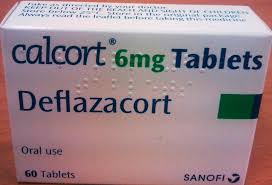
Unapproved but safe and effective…
Personal drug importation works! This week, drug company Marathon announced it is postponing the launch of Emflaza, its recently FDA-approved version of an off-patent drug called deflazacort, in the face of heavy scrutiny by Senator Bernie Sanders and Congressman Elijah Cummings over its price tag – $89,000 a year. This drug, which treats Duchenne Muscular Dystrophy (DMD), is available under the brand name Calcort in the United Kingdom at about 99% less (about $750) than the current U.S. “postponed” price. Generic versions of deflazacort are also available internationally among verified online pharmacies at an annual price tag of about $650.
For some background on the disease and treatment: DMD is a “genetic disorder characterized by progressive muscle degeneration and weakness.” It mostly afflicts boys, with onset ranging from ages 3-5. It’s caused by the absence of a protein called dystrophin. For more, see the Muscular Dystrophy Association’s (MDA) website. According to the MDA, corticosteroids, including deflazacort, help slow the disease’s progression.
For a critique of the Emflaza price read Sanders and Cummings’ letter. No one could do better than that. Marathon CEO Jeff Aronin attempts to rationalize the price here but it almost reads like an apology. They argue that no consumer will deal with the $89,000 price tag because health insurers only charge a $20 co-pay and they have patient assistance programs to help the uninsured. It’s never that perfect, at all: people always slip through the cracks and we’re not forcing people to go without needed medication or go into bankruptcy to get it. Right?
So now a fist full of truth about this medication and safe online access to affordable medicines to shine a bright light on the lifeline that is personal drug importation… (more…)
Tagged with: deflazacort, emflaza, marathon
by Gabriel Levitt, President, PharmacyChecker.com and Prescription Justice | Feb 8, 2017 | Drug Prices, Drug Safety, Generic drugs, Narrow Therapeutic Index
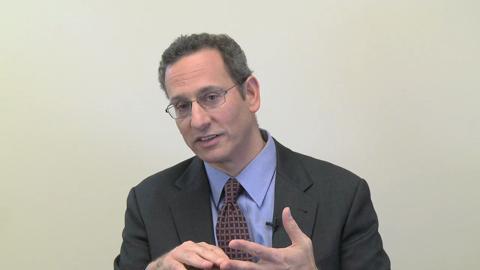
Joe and Terry Graedon have been helping Americans make better health decisions for the last 40 years, including through their syndicated radio show on National Public Radio called The People’s Pharmacy. As you can imagine, their listeners are interested in prescription drug safety and savings. Our CEO was on their show this past Saturday and I’d like to tell you about it, especially if you want to learn how to save money on brand name drugs.
The CEO of PharmacyChecker.com, Tod Cooperman, MD, is also the founder and president of ConsumerLab.com, the leading evaluator of health and wellness products. ConsuemrLab.com has worked with The People’s Pharmacy in the past to test prescription medications. While I believe that generics sold in the U.S. are usually of the highest quality, equal to or better than generics in most other countries, ConsumerLab.com’s findings show that some generic medications in the U.S. are not always equal to the brand. Due to his expertise is drug quality and his knowledge about drug prices, The People’s Pharmacy brought Dr. Cooperman on to their show last week to talk about Narrow Therapeutic Index (NTI) drugs. Listen to the show! (See minutes 6:50-18:00).
For NTI medications, it’s even more important that the active pharmaceutical ingredient is present in the exact amount required. When NTI medications have too much of the active pharmaceutical ingredient, it can be toxic; but those that have too little may not be adequately efficacious. Most NTI drugs are available in generic form, which usually means they are low cost, even without insurance, and usually lower-priced than in Canada and other countries, too! The opposite holds true for brands.
Some providers are deciding that it’s important for their patients stick with the brand for NTI drugs for the reasons stated above. But the prices here are often too high. In the radio show, Dr. Cooperman recommends looking internationally for those who can’t afford the brand locally. Americans can often find discounts averaging 80% internationally on Brand name NTI drugs. Last summer, when we read The Graedon’s Guide to Saving Money on Medicines, we noticed the list of NTI drugs and wanted to compare drug prices domestically and internationally. Our research from Fall 2016 is below.
Narrow Therapeutic Index (NTI) Drugs: Brand Name Price Comparison (U.S., Canada, International*)
|
|
Per Pill Cost[i] |
Potential Savings |
| Medication Name: Brand (Generic) |
Strength |
U.S[ii] |
Canada[iii] |
NZ/UK[iv] |
Canada |
Other Int’l |
Overall |
| Tegretol (Carbamazepine) |
200mg |
$2.87 |
$0.77 |
$0.57 |
73% |
80% |
80% |
| Cleocin HCl (Clindamycin) [v] |
300mg caps |
$24.00 |
$3.38 |
NA |
86% |
NA |
86% |
| Catapres (Clonidine HCl) |
0.1mg |
$3.34 |
$0.45 |
NA |
86% |
NA |
86% |
| Sandimmune (Cyclosporine) |
100mg /mL 50mL |
$664.84 |
$327.98 |
NA |
51% |
NA |
51% |
| Lanoxin (Digoxin)[vi] |
0.125mg |
$12.54 |
$0.75 |
NA |
94% |
NA |
94% |
| Depakote (Divalproex)[vii] |
250mg |
$5.73 |
$0.90 |
NA |
84% |
NA |
84% |
| Zarontin (Ethosuximide) |
250mg |
$4.51 |
$0.66 |
NA |
85% |
NA |
85% |
| Synthroid (Levothyroxine) |
100 mcg (0.1mg) |
$1.87 |
$0.35 |
$0.63 |
81% |
66% |
81% |
| Dilantin (Phenytoin) |
100mg |
$1.45 |
$0.33 |
$0.48 |
77% |
67% |
77% |
| Depakene (Valproic acid) |
250mg |
$5.76 |
$0.93 |
NA |
84% |
NA |
84% |
| Coumadin (Warfarin) |
5mg |
$3.69 |
$0.60 |
NA |
84% |
NA |
84% |
|
|
|
|
|
|
|
|
| Average Savings |
|
|
|
|
|
|
81% |
[i] Based on three month supply of medication.
[ii] Walgreens, NYC, December 2016
[iii] Prices of international online pharmacies verified by PharmacyChecker.com.
[iv] Prices of international online pharmacies verified by PharmacyChecker.com.
[v] Marketed as Dalacin C in Canad
[vi] Marketed as Toloxin in Canada
[vii] Marketed as Epival in Canada
Tagged with: generic drugs, Narrow Therapeutic Index, The People's Pharmacy, Tod Cooperman
by Gabriel Levitt, President, PharmacyChecker.com and Prescription Justice | Jan 27, 2017 | Advocacy, Drug Prices, Pharmaceutical Industry, Pharmacy Benefit Managers
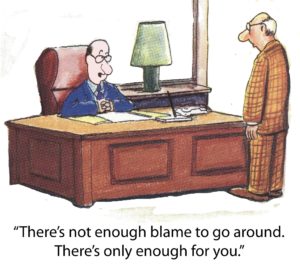
Don’t blame poor little Big Pharma
Big Pharma is in the mood to share! A new report commissioned by the Pharmaceutical Researchers and Manufacturers of America (PhRMA), the trade association representing the world’s largest global pharmaceutical companies, seems to assert that the blame for high drug prices should be shared with pharmacy benefit managers, retail pharmacies, wholesalers, and, I think, even hospitals – and more. It appears that PhRMA’s main target is the pharmaceutical benefit managers.
Noting that President Donald Trump recently said drug companies are “getting away with murder” – I view this report as pharma’s attempt to communicate, “hey, prez, we’re not alone here in being greedy.” The report has merit, which I’ll explain below when looking at the dollar numbers. But as far as the American consumer is concerned: murder is murder. Hey, I’m just using the president’s words. Due to the killing made by pharma and friends (because they’re all friends), 10s of millions of Americans are leaving their scripts unfilled because the prices, one way or the other, are out of reach.
The report is called “The Pharmaceutical Supply Chain: Gross Drug Expenditures Realized by Stakeholders.” You can find a summary of it here but this is my take on it. (more…)
Tagged with: phrma, supply chain
by Gabriel Levitt, President, PharmacyChecker.com and Prescription Justice | Jan 20, 2017 | Advocacy, Drug Prices, Drug Safety, Policy, Politics
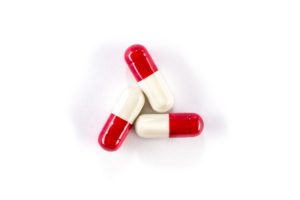 In this blog post I’m going to get personal. Not about me but about importing medication from Canada and other countries. You’ll see what I mean. Last week, Senator Bernie Sanders introduced an amendment to the budget bill, which would have paved the way for future deficit neutral spending to implement new regulations expanding lawful access to lower cost imported medication from wholesalers, pharmacies and individuals. Unfortunately, the amendment was defeated 52-46.
In this blog post I’m going to get personal. Not about me but about importing medication from Canada and other countries. You’ll see what I mean. Last week, Senator Bernie Sanders introduced an amendment to the budget bill, which would have paved the way for future deficit neutral spending to implement new regulations expanding lawful access to lower cost imported medication from wholesalers, pharmacies and individuals. Unfortunately, the amendment was defeated 52-46.
Let’s forget about the fact that drug companies give members of Congress lots of money. OK, I can’t forget: it’s about two billion dollars over the last 15 years. Some senators who voted against the amendment cited their concerns with safety as a basis for their vote. Let me explain why they are wrong, at least when it comes to personal vs. wholesale drug importation. (more…)
Tagged with: Bernie Sanders, Congress, Corey Booker
by Gabriel Levitt, President, PharmacyChecker.com and Prescription Justice | Dec 28, 2016 | Advocacy, Drug Importation, Drug Prices, Government, Online Pharmacies, Personal Drug Importation
 As we close out 2016, I’m not surprised to be reporting and commenting on new survey data by the Kaiser Family Foundation showing that 19 million Americans have purchased and imported lower cost medication from Canada and other countries. I suspect the number is higher and I’m sure it’s not high enough, as I’ll discuss at the conclusion of this post.
As we close out 2016, I’m not surprised to be reporting and commenting on new survey data by the Kaiser Family Foundation showing that 19 million Americans have purchased and imported lower cost medication from Canada and other countries. I suspect the number is higher and I’m sure it’s not high enough, as I’ll discuss at the conclusion of this post.
First, as reported in Kaiser Health News: “As drug prices have spiraled upward in the past decade, tens of millions of generally law-abiding Americans have committed an illegal act in response: They have bought prescriptions outside the U.S. and imported them.” The Kaiser story also reports that many such purchases are made online and while the FDA warns that many online pharmacies are not safe, “…many medicines purchased from another country are the same as the ones patients buy in the U.S.” That’s all true. The key to safety when buying medications internationally is only purchasing from properly verified websites, ones approved by PharmacyChecker.
Just to recap why importation is a lifeline, let’s look at some highlights from recent data. (more…)
Tagged with: AARP, Kaiser Family Foundation, price watch
by Gabriel Levitt, President, PharmacyChecker.com and Prescription Justice | Dec 23, 2016 | Drug Prices, Health Insurance, Pharmacy Benefit Managers, underinsured
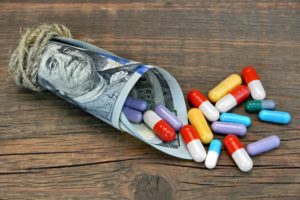 How would you feel if the cost for your brand name drug went up from a copayment of $44 to a cash price of $614 for a three-month supply ($6.82 a pill) when you went in to fill your script in 2017? If you take brand name Crestor 10mg then that may happen to you if you’re signed up with CVS Caremark, which is dropping that drug in 2017. In fact, large PBMs, such as CVS Caremark and Express Scripts are dropping lots of medications from their formularies in 2017. What’s insane is that brand name Crestor 10mg from the lowest cost international online pharmacy verified by PharmacyChecker is 29 cents a pill or $26 for a 90 day supply, dispensed from Turkey. If you prefer to buy it from Canada, it will cost a low of about $2.85 per pill, much more than Turkey but still almost 60% less than in the U.S.
How would you feel if the cost for your brand name drug went up from a copayment of $44 to a cash price of $614 for a three-month supply ($6.82 a pill) when you went in to fill your script in 2017? If you take brand name Crestor 10mg then that may happen to you if you’re signed up with CVS Caremark, which is dropping that drug in 2017. In fact, large PBMs, such as CVS Caremark and Express Scripts are dropping lots of medications from their formularies in 2017. What’s insane is that brand name Crestor 10mg from the lowest cost international online pharmacy verified by PharmacyChecker is 29 cents a pill or $26 for a 90 day supply, dispensed from Turkey. If you prefer to buy it from Canada, it will cost a low of about $2.85 per pill, much more than Turkey but still almost 60% less than in the U.S.
We looked at 15 brand name medications that will no longer be available on some PBM formularies in 2017 and found that the maximum savings average is 74% if you purchase the medication from a PharmacyChecker-verified international online pharmacy compared to the lowest cost U.S. pharmacy options. For more on this price analysis check out today’s news release.
Most Americans have insurance, about 90%, which is a record high. No, I’m not getting into a discussion about the successes and failures of Obamacare, but you should know that just because you’re insured doesn’t mean you can afford medication. Looking at Kaiser Family Foundation data, about 41% of underinsured Americans between 18-64 don’t fill a prescription because of cost. That’s about 16.5 million (too many) people.
Lest you forget, for many of these dropped drugs, the generic is often available in the U.S. at lower cost than the brand name from an international online pharmacy. But not with Crestor. The generic of Crestor, Rosuvastatin, can be purchased at your local pharmacy, with the lowest prices ranging from $35-50 for a 3-month supply, which is more (but still comparable) to the lowest international, online cost of brand name Crestor.
Happy Holidays from PharmacyChecker!
Tagged with: dropped drugs








